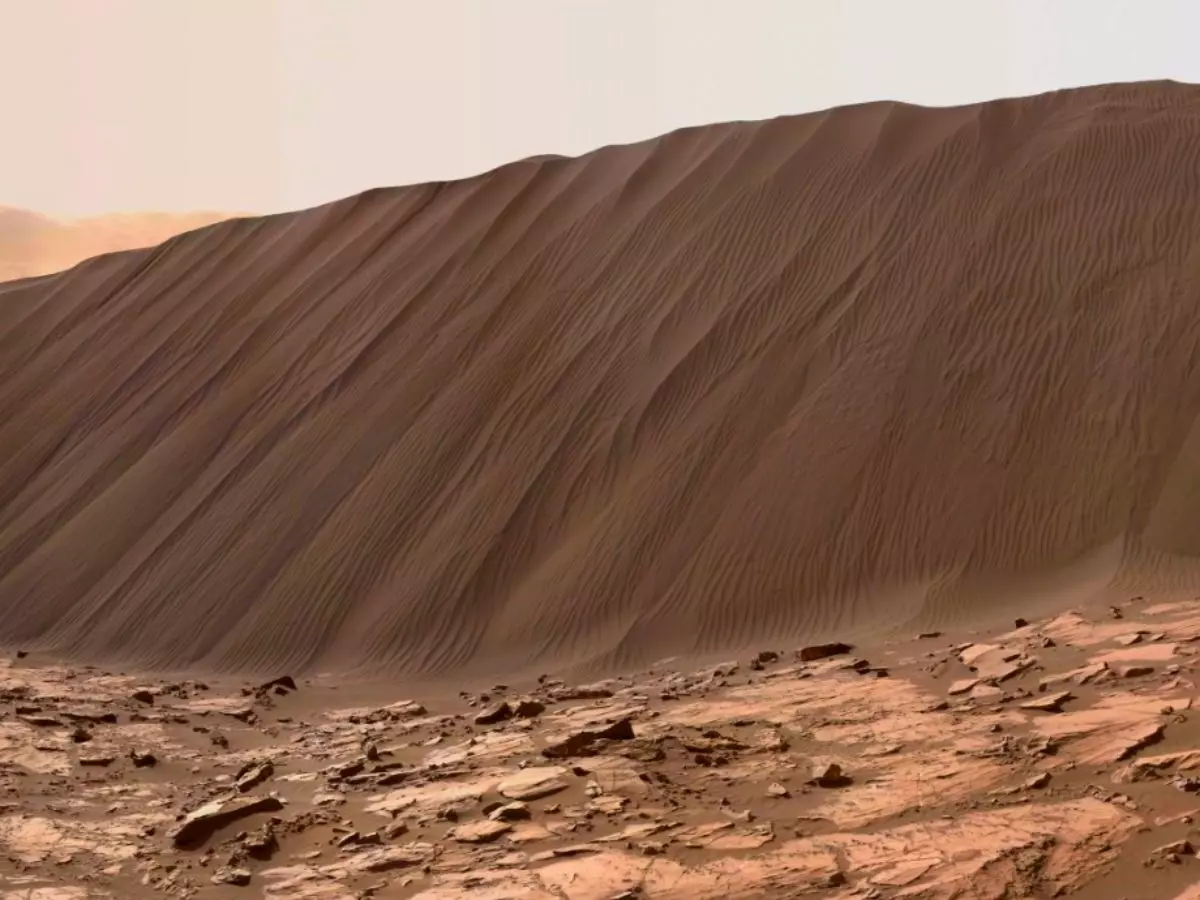Experience Mars In Stunning 4K Showcasing Beautiful Landscape Of Red Planet
A YouTube channel upscaled NASA Mars pics and made them in 4K UHD video.

Hearing news about exploration on Mars or Elon Musk¡¯s quotes on life on Mars, we often think how would humans survive there? We know Mars is a red deserted planet that looks breathtaking at the same time quite scary, and it¡¯s far from being habitable as of now.
However, in case you were curious to see what different facets of Mars looks like, we¡¯ve got something that will totally blow your mind.
 NASA / Elderfox Documentaries
NASA / Elderfox Documentaries
A YouTube channel by the name of Elderfox Documentaries has taken several high-resolution images captured by NASA¡¯s Mars rovers, upscaled them and put them in a stunning 4K video that can make your jaw drop on a wide-screen TV.
The images shown in the video have been captured by NASA¡¯s Spirit, Curiosity and Opportunity rovers. The channel editor has made the high-resolution images to seem like a video by adding clever panning effects and in most cases, you won¡¯t be able to tell the difference.
The Mars landscape video showcases Martian areas of Santa Maria Crater, John Klein Drill Site for the Curiosity Rover, Cape Verde and Glen Torridon on the surface of the Red Planet like you've never seen before.
Bringing Mars images to life
The narrator explained the process of how they brought these high-resolution images to life, stating, ¡°In order to create a video like this several images must be stitched together to create a mosaic or panorama.¡± There were parts of images that were completely black. The editors fused images in such a way that it all looks more seamless and life-like.
 NASA/Elderfox Documentaries
NASA/Elderfox Documentaries
Why can¡¯t Mars rovers record video?
The YouTuber, in his video, explains through a voiceover how instead of making still images appear like videos, capture videos directly. To this, he explained that the rate at which Mars Curiosity rover can send data is around 32 kilobytes per second.
However, In case the Mars Reconnaissance Orbiter is flying above the rover, the speed boosts up to 2 megabytes per second -- but this is roughly for eight minutes each day on Mars. Sending a high-quality video on such a network would take forever.
Check out the video below:
